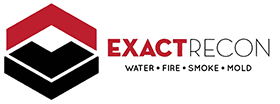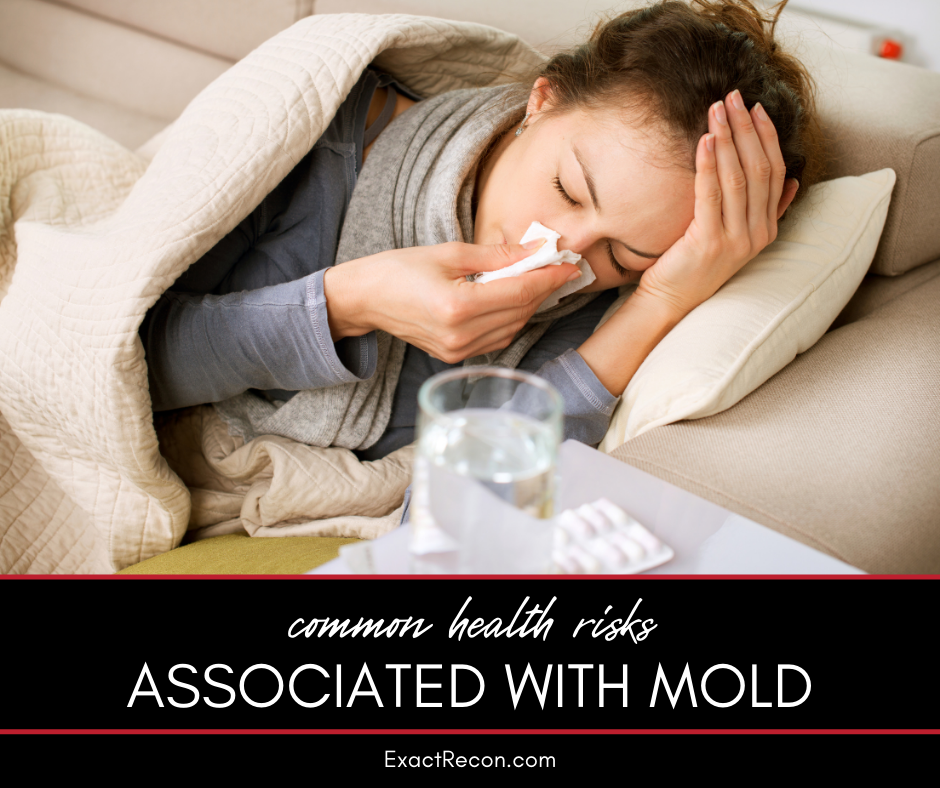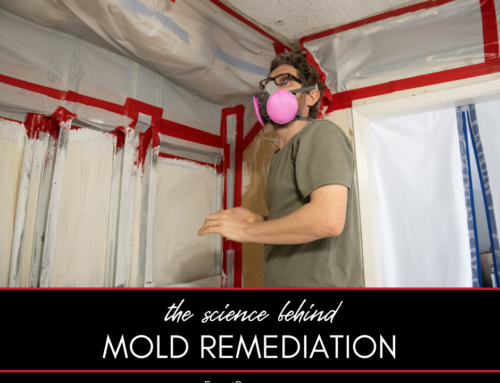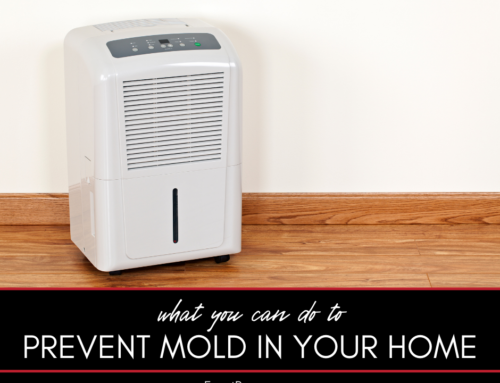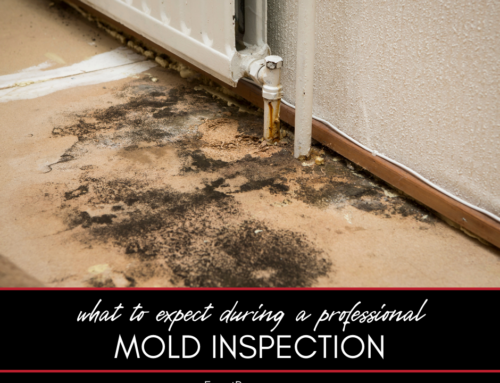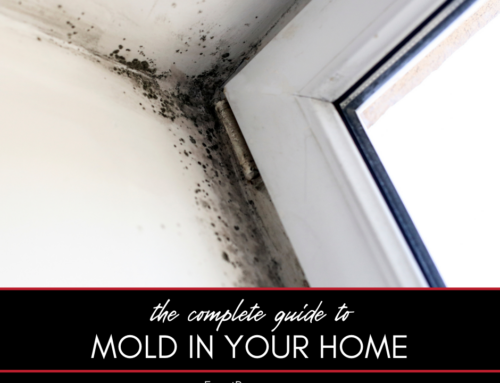Mold is more than just an unsightly problem in your home; it can pose significant health risks to you and your family. Understanding these health risks and knowing how to address mold issues promptly is crucial for maintaining a safe living environment.
Common Health Risks Associated With Mold
Mold exposure can lead to a variety of health problems, particularly for those with preexisting conditions or weakened immune systems. This guide explains the following:
- Respiratory problems
- Allergic reactions
- Asthma complications
- Infections
- Toxic mold syndrome
- Neurological symptoms
- Long-term health effects
Here’s a closer look at each.
Respiratory Problems
Exposure to mold spores can cause a range of respiratory problems. When mold spores are inhaled, they can irritate the airways, leading to coughing, sneezing, and shortness of breath. People with chronic respiratory conditions, such as chronic obstructive pulmonary disease (COPD), may experience exacerbated symptoms. Even individuals without preexisting respiratory issues can develop symptoms such as throat irritation, wheezing, and difficulty breathing. Prolonged exposure can result in more severe respiratory conditions, making it crucial to address mold problems promptly.
Related: Tips on protecting your home from disasters and other damage
Allergic Reactions
Mold is a common allergen that can trigger allergic reactions in sensitive individuals. Symptoms of mold allergies include sneezing, runny or stuffy nose, itchy eyes, skin rashes, and throat irritation. These symptoms can range from mild to severe and can significantly impact quality of life. For people with mold allergies, exposure can cause chronic discomfort and may lead to more serious health issues if not addressed. Reducing indoor humidity levels and eliminating mold sources can help mitigate allergic reactions.
Related: How to make an insurance claim after a disaster
Asthma Complications
For individuals with asthma, mold exposure can be particularly harmful. Mold spores can act as asthma triggers, causing asthma attacks and worsening symptoms. Common signs of mold-induced asthma complications include increased frequency and severity of asthma attacks, wheezing, chest tightness, and difficulty breathing. Managing asthma involves avoiding known triggers, so identifying and removing mold from the home environment is essential. Professional mold remediation can help ensure that the mold is thoroughly removed, reducing the risk of asthma complications.
Infections
While mold typically affects individuals through allergic reactions and respiratory problems, certain types of mold can cause infections, particularly in those with weakened immune systems. Fungal infections, such as aspergillosis, can develop when mold spores are inhaled and take hold in the lungs. These infections can be severe and require medical treatment. People undergoing chemotherapy, organ transplant recipients, and those with chronic illnesses are at a higher risk of mold-related infections. Prompt and effective mold remediation is critical to prevent these serious health risks.
Toxic Mold Syndrome
Certain molds, such as Stachybotrys chartarum (black mold), produce mycotoxins that can cause toxic mold syndrome. Symptoms of toxic mold syndrome include chronic fatigue, headaches, dizziness, nausea, cognitive difficulties, and respiratory problems. Long-term exposure to mycotoxins can lead to more severe health issues, including neurological and immune system damage. Toxic mold syndrome requires immediate attention and professional remediation to eliminate the mold and mitigate health risks.
Related: All about wind damage
Neurological Symptoms
Exposure to toxic molds can also lead to neurological symptoms. Mycotoxins produced by certain molds can affect the central nervous system, leading to symptoms such as headaches, memory loss, difficulty concentrating, and mood swings. In severe cases, individuals may experience tremors, numbness, and tingling in the extremities. These neurological symptoms can significantly impact daily functioning and quality of life. Addressing mold issues promptly through professional remediation is essential to protect your neurological health.
Long-Term Health Effects
Prolonged exposure to mold can lead to long-term health effects that persist even after the mold has been removed. Chronic respiratory issues, persistent allergies, and long-term neurological problems are possible consequences of extended mold exposure. Individuals with compromised immune systems or preexisting health conditions may experience more severe and lasting effects. To prevent long-term health issues, it is crucial to address mold problems as soon as they are detected and ensure thorough remediation by professionals.
FAQ About Health Risks Associated With Mold
Check out these commonly asked questions about the health risks associated with mold. If you don’t see your question here, please call our office and we’ll find you the answers you need.
Can Mold Exposure Cause Chronic Respiratory Problems?
Yes, prolonged mold exposure can lead to chronic respiratory problems, including persistent coughing, wheezing, and shortness of breath. Addressing mold issues promptly can help prevent long-term respiratory health issues.
How Can I Tell If Mold Is Affecting My Health?
Symptoms such as persistent coughing, sneezing, runny nose, itchy eyes, skin rashes, and respiratory difficulties may indicate mold exposure. If you experience these symptoms, especially at home, it’s important to investigate potential mold sources.
Are Some People More Susceptible to Mold-Related Health Issues?
Yes, individuals with asthma, allergies, chronic respiratory conditions, weakened immune systems, and young children and the elderly are more susceptible to mold-related health issues. These groups should take extra precautions to avoid mold exposure.
Related: Black, gray and clean water: What you need to know
Can Mold Cause Long-Term Neurological Problems?
Exposure to toxic molds can lead to long-term neurological problems, including memory loss, difficulty concentrating, and mood changes. In severe cases, individuals may experience tremors and numbness. Professional mold remediation is essential to mitigate these risks.
Why Is Professional Mold Remediation Important?
Professional mold remediation is important because it ensures that all mold is thoroughly removed, including hidden mold that may not be visible. Professionals have the expertise and equipment to safely and effectively eliminate mold, preventing further health risks.
Do You Need a Disaster Remediation Expert in Washtenaw County or Jackson County?
If your home has already been damaged, we can help. Check out our services and call Exact Recon for your free disaster remediation quote today. We offer:
